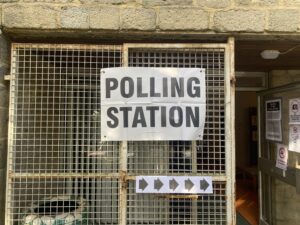Book review: Local Dollars, Local Sense
 There is an investment apartheid in the United States. A market failure that, by implication, stops people investing their savings locally.
There is an investment apartheid in the United States. A market failure that, by implication, stops people investing their savings locally.
The discrimination is against the 98% of US citizens who are ‘unaccredited’ investors and whose wealth has a kind of second-class status.
In 2010 the most liquid assets of US households and non-profits totaled $30tn, all of it invested in stocks, bonds, mutual, pension and life insurance funds. According to Michael Shuman’s Local Dollars, Local Sense that’s more than double US GDP.
A corrective to this market failure could see $15tn available to invest in locally owned small businesses. It’s worth taking a moment to comprehend what that equates to:
- $50,000 for every US citizen;
- $250m direct investment for a town of 5,000 people; or
- $25bn for a city of 500,000.
Shuman argues that instead of investing savings with ‘Wall Street’, this capital could be put to better productive use if invested locally. He also argues it would guarantee better returns for your average American looking to squirrel away cash for the future.
An illustration of the way the legal system is rigged in favour of the accredited appears on page 128. Imagine you’re a small business owner trading art on the internet. You want to expand your business, but the banks aren’t lending. So you approach others in the community.
Your first problem is a piece of depression-era legislation, the 1933 securities act. It makes it bureaucratically onerous for our mythical art dealer to solicit funds from anyone other than the ‘accredited’. Detailed memoranda must be drawn up, as much as $50,000 would be blown on this alone. It’s too expensive to tout cash from the unaccredited.
The main problem then, appears to be a regulatory one. Make it easier for the ‘unaccredited’ to choose what their shares, pensions or savings funds can be invested in.
The book provides a wealth of examples involving locally based co-ops, not-for-profits, credit unions etc that have had success in exploiting loopholes in the institutional savings and investment infrastructure. There’s a wealth of useful information in the book that’s potentially applicable in the UK.
But $50tn is a lot of money. The market failure Shuman identifies could be reformed, presumably at the expense the politically well-connected Main Street institutions identified as the problem. Given recent US economic history, one wonders whether this type of deregulation is politically palatable.
This isn’t a political book, more a useful primer for local groups looking to circumvent barriers to investment without going down the venture capital or other exploitative routes. It’s full of good practice and case studies. But the issue of accreditation reform in favour of ‘Main Street’ is a political issue, which the book avoids.
A revealing insight into the direction that a lobbying operation on behalf of the unaccredited might take is provided in an interview Shuman gave in Transition Culture back in 2011. There he describes an essentially neoliberal approach to localism that he thinks can be applied across the political spectrum. In key respects Shuman shares the Tea Party analysis of what has happened in recent US economic history: too much regulation, too much state subsidy of big business etc.
This sets Shuman apart from many advocates of localism and it is something that he is aware of.
Here are some of the case studies to boost local investing outlined in the book:
TURBOCHARGING LOCAL BANKS
Historically the type of financial institution mostly likely to forward a loan to a small business would be a local bank. These days your local bank manager has a universe of reasons not to give you credit.
But, Shuman asks, what would happen if a group approached a locally based bank or credit union with the following proposal: ‘We will put our business deposits with you if, in return, you use that money to process and service the loans that meet our social and ecological criteria?”
This is essentially the approach pioneered up by the New Economics Institute with the creation of the Self-Help Association for a Regional Economy (SHARE). The institute has piloted several successful social experiments from community supported agriculture, to the local money system ‘Berkshares’ which, in partnership with local banks has put $3m of alternative currency into circulation since 2006.
REFORM DEPRESSION-ERA REGULATIONS
Not really a case study, but a piece of lobbying advice. Shuman wants to see ‘a great leap’ in terms of overhauling the legislation relating to the un-accredited.
He advocates:
- A devolved regulatory system, so local authorities get to decide what ought to be a viable or ‘accredited’ investment model;
- Less emphasis on the need for regulators to take a ‘fine tooth comb’ to local business plans; and
- Regulators need to overhaul their culture and understand that it local economies are dynamic and crucial to economic growth
BRING BACK LOCAL STOCK EXCHANGES
Ex-attorney with a background in NYSE and NASDAQ, John Katovich, argues that stock exchanges need to get back to their original purpose: ‘a place where a company could get capital so that it could operate and grow in a modest but viable way’.
Mission Markets provides a glimpse of what local stock exchanges might look like.
STRENGTH IN NUMBERS
Individual unaccredited investors are discriminated against, but what about banding together to create a joint vehicle that is accredited? One option outlined by Shuman is the Business Development Company (BIDCO). Essentially venture funds for smaller businesses, these vehicles are popular among Wall Street investors, but are rarely taken up by local businesses.
- New Start interviews the author of Local Dollars, Local Sense here.















